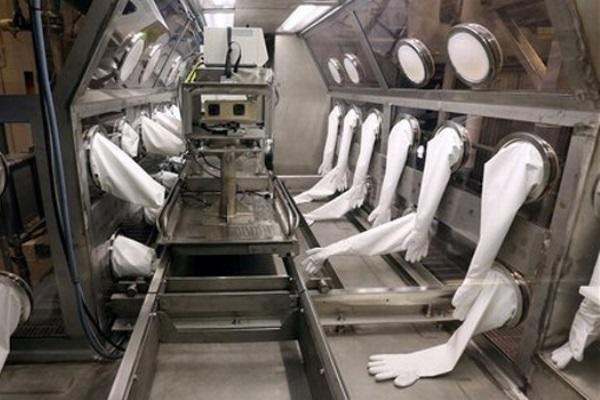The number of labs, contractors and military facilities worldwide that received live anthrax samples mistakenly shipped by the Army has now grown to 85 in 20 states and six foreign countries, the Pentagon said Wednesday.
An unidentified facility in Italy was recently added to the list of foreign labs that received live anthrax spores, said Navy Capt. Jeff Davis, the new director of Press Operations at the Pentagon. Other countries which unknowingly received low-level live samples of the deadly pathogen were South Korea, Australia, Britain, Canada and Japan.
Davis said the current known total of government and private labs that were shipped live anthrax by Federal Express and other commercial means was 85, up from 84 earlier this week.
The states which received live anthrax samples have thus far totaled 20: California, Utah, Texas, Tennessee, Virginia, Massachusetts, Wisconsin, Maryland, New Jersey, New York, Delaware, Washington, Illinois, Florida, Arizona, Ohio, North Carolina, Rhode Island, Pennsylvania and Mississippi.
The Defense Department's purpose in making the shipments was to encourage research on better testing methods and an improved vaccine, and also to develop a field testing device that potentially could be used by troops
The anthrax scandal has escalated since a lab in Maryland in late May found that a sample it had received, which was supposed to be inert, actually contained live spores. Four workers at the Maryland lab were treated with antibiotics as a precaution.
The Pentagon then discovered that live samples had been shipped to at least eight other states and the list has been growing ever since. All of the live samples have been traced to the Army's Dugway Proving Grounds in Utah as the point of origin.
Early last month, Deputy Defense Secretary Bob Work ordered a 30 day-review of the anthrax scandal to be led by Frank Kendall, the Under Secretary for Acquisition, of what went wrong in the shipment of potentially deadly anthrax around the nation and the world.
Davis said that the review had been completed, and Work and Kendall were expected to brief on the findings and recommendations, possibly next week.
-- Richard Sisk can be reached at richard.sisk@military.com




























